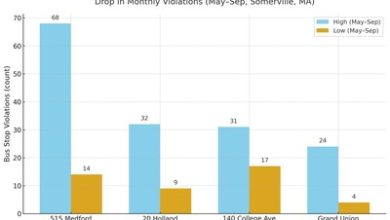- DO-2 is a best-in-class MET kinase inhibitor that has completed enrollment in a Phase 1 dose escalation study
- Tumor shrinkage was observed in 100% of MET exon 14 skip NSCLC patients without additional oncogenic drivers, at doses that achieved preclinically defined thresholds
- DO-2 has a very good safety profile with minimal peripheral oedema and clean safety profile compared to competitors
LIÈGE, Belgium, Sept. 9, 2025 /PRNewswire/ — DeuterOncology, a clinical-stage biotech company focused on developing best-in-class deuterated cancer therapies, today announcing compelling safety, pharmacokinetic and efficacy results from its ongoing Phase I dose escalation study of DO-2, a novel deuterated MET tyrosine kinase inhibitor. The results are being presented at the World Conference on Lung Cancer (WCLC) 2025 in Barcelona (Abstract ID-2859).
The Phase I study enrolled 29 patients (26 RECIST 1.1 evaluable) with advanced solid tumors harboring any known driver alterations, with 86% having non-small cell lung cancer (NSCLC). The study’s primary findings demonstrate that DO-2 treated patients showed a remarkable 100% Disease Control Rate (DCR) and saw tumor shrinkage in 100% of MET exon 14 skip mutation-positive NSCLC patients without alternative oncogenic drivers and reached efficacious drug exposures (10/10 patients). RECIST 1.1 Partial responses (>30% reduction) were observed in 2 out of these 10 patients. Importantly, the study showed a markedly improved safety profile compared to approved MET inhibitors, with only one patient (5%) experiencing grade 1 peripheral oedema versus 68-82% seen with other agents in this class.
“These results represent a significant advancement in MET-targeted therapy,” said Dr. Cecilia Ahlin, CMO of DeuterOncology. “Our deuteration strategy has successfully enhanced drug exposure while maintaining efficacy, but most importantly, we have achieved this without the debilitating peripheral oedema that forces many patients to discontinue current MET inhibitors —symptoms that can severely limit daily activities such as walking, dressing, or cooking. This addresses a critical unmet medical need for cancer patients.”
The study’s key findings include:
- Superior Safety Profile: Only 1 patient (5%) experienced peripheral oedema (grade 1) compared to 68-82% with approved competitors. No grade 3 or 4 peripheral oedema was observed versus ~17% in approved competitors
- Enhanced Pharmacokinetics: Deuteration increased plasma exposure compared to the non-deuterated parent compound, enabling once-daily dosing at 60mg with food, versus 450-800mg daily with approved competitors
- Promising Efficacy: A 100% disease control rate (DCR) was observed, including two partial responses, in treatment-naïve and previously treated MET exon 14 skipping NSCLC patients without known resistance mechanisms who achieved efficacious drug exposure. Notably, one patient with pleural effusion experienced full resolution and maintained stable disease for over 20 months
- Excellent Tolerability: Only two grade 3 treatment-related adverse events (fatigue and reversible creatinine increase) were observed across all dose levels
Dr. Hans Prenen, Principal Investigator at University Hospital Antwerp (UZA), commented: “The clinical data for DO-2 are very encouraging. The fact that we’re seeing robust anti-tumor activity with minimal peripheral oedema represents a potential game-changer for MET-driven lung cancer patients, who currently face difficult treatment tolerability issues with existing therapies.”
The study confirms DeuterOncology’s hypothesis that continuous 24/7 MET inhibition is not required for efficacy but is responsible for the class-effect toxicity of peripheral oedema. DO-2’s unique biochemical and pharmacokinetic profile allows for effective target engagement while providing recovery periods that minimize on-target toxicities.
Based on these promising Phase I results, DeuterOncology has initiated an expansion cohort in selected first-line MET exon 14 skip NSCLC patients to further validate the safety and efficacy of the 60mg once-daily regimen.
Details of the poster presentation are as follows:
Title: Preliminary Safety and PK of the MET-TKI DO-2 in Advanced Solid Tumors with MET Aberrations: Phase I Study
Authors: Hans Prenen MD, PhD, Rachel Galot MD, PhD, Alexis Cortot MD, PhD, Aurélie Swalduz MD, PhD, Bernd Dekeyser MD, Peter de Bruijn PhD, Francois Zammit MD, Jean-Pascal Machiels MD, PhD, Brant Delafontaine MD, Sylvie Rottey MD, PhD, Ingrid Desar MD, PhD, Marthe Paats MD, PhD, Barend J. Sikkema3MD, , Florence Wastelin MSc, Cecilia Ahlin MD PhD, Timothy Perera PhD, Jaap Verweij MD, PhD, Carla van Herpen MD, PhD, Debbie G.J. Robbrecht MD, PhD
Presenter: Timothy Perera
Session date and time: 09 September 2025. 10.00AM CEST
Poster ID number: Abstract ID-2859. P3.18.66
About MET-Driven Lung Cancer
Lung cancer remains the most common form of cancer worldwide, affecting approximately 2.2 million individuals annually. MET exon 14 skipping mutations occur in ~3% of NSCLC patients—equating to an estimated 60,000–70,000 new cases worldwide annually—and represent a validated therapeutic target. However, current approved MET inhibitors suffer from high rates of peripheral oedema (>50% of patients), leading to frequent dose reductions, treatment interruptions, and discontinuations that compromise patient outcomes.
About DeuterOncology
DeuterOncology is a clinical-stage biotech company focused on developing deuterated kinase inhibitors as best-in-class targeted cancer therapies. The company’s lead candidate, DO-2, is a novel deuterated MET kinase inhibitor designed to overcome the tolerability limitations of current MET-targeted therapies while maintaining superior efficacy. Headquartered in Liège, Belgium, DeuterOncology was founded in 2020 by Dr. Timothy Perera and collaborates with a global expert network of partners to bring innovative cancer solutions to patients worldwide.
For more information about DeuterOncology’s research, please visit www.deuteroncology.com
View original content:https://www.prnewswire.com/news-releases/deuteroncology-to-present-promising-phase-i-do-2-met-kinase-inhibitor-data-at-wclc-2025-302549681.html
SOURCE DeuterOncology




